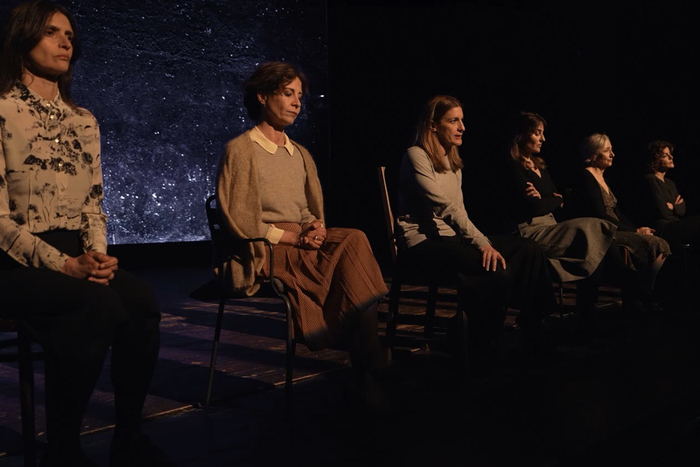Six different women and a common story, that of the Via Rasella attack and the Fosse Ardeatine massacre, told in their own words and the intensity of the life they lived. It is 'Many faces in memory', a wonderful theatrical show directed by Francesca Comencini which after many years on stages throughout Italy has become a docufilm which Rai Cultura is now proposing, with the introduction of Amedeo Osti Guerrazzi, on Tuesday 16 April at 10.10pm premiered on Rai Storia. ''These six testimonies represent an indispensable tool for understanding - beyond the controversies, beyond all the diatribes that occurred in the post-war period - what really happened", explains Osti Guerrazzi.
Only six chairs on stage for the protagonists of the story, Ada Pignotti, Gabriella Polli, Vera Simoni, Carla Capponi, Marisa Musu, Lucia Ottombrini, that is, a wife and two daughters of men murdered in the massacre and three partisans decorated for military valor who were in via Rasella whose testimonies are were collected by Alessandro Portelli for the book 'The Order was executed. Rome, the Fosse Ardeatine, the memory', from which the show is freely based. The very talented Lunetta gives it voice on stage with the intensity of the simple word Savino, Carlotta Natoli, Simonetta Solder, Chiara Tomarelli, Bianca Nappi and Mia Benedetta. As in the theater, the text and interpretation also convey the intensity of this unparalleled page of history in which 335 men were killed in retaliation after the attack. of 23 March 1944 carried out by the Roman Gap, in which 33 German soldiers were killed and of which the seventieth anniversary was celebrated this year.
"The show was born many years ago out of self-conviction, out of self-production because it seemed like an important thing to do and to show around. So - Francesca Comencini told ANSA when the docu was screened at the Rome Film Festival - we decided in the same way, shooting this little docu in one day, a Monday at the Ghione theatre, that it was important to leave a trace of it because it had to continue shooting". The text, from 2015 when it was performed on stage for the first time, has an enormous relevance today: it talks about war, fascism, brutal killings and women who have to face all this alone, in their own way. "When we started working on it, the world situation was completely different - says Comencini - but in their intense oral story these women, despite being so different from each other, bring to light all their strength". But also their extraordinary humanity, when the partisan talks about her pain in taking the life of the enemy who was still a man, or when the daughter asks her father why he didn't stay at home with his children and then apologizes to him, or when the wife promises the husband she married just a few months earlier that she would never marry again and does so, living in his memory. "They are indomitable widows, scarred but full of strength who lived on the margins of history, like many of the women I have told about in my work, or at the center like the partisans but they tell it without rhetoric". Comencini does not deny that she is "very attached to this work because it is the story of those who were killed, of those who fought for our nation, our country, with a profound patriotic spirit".

